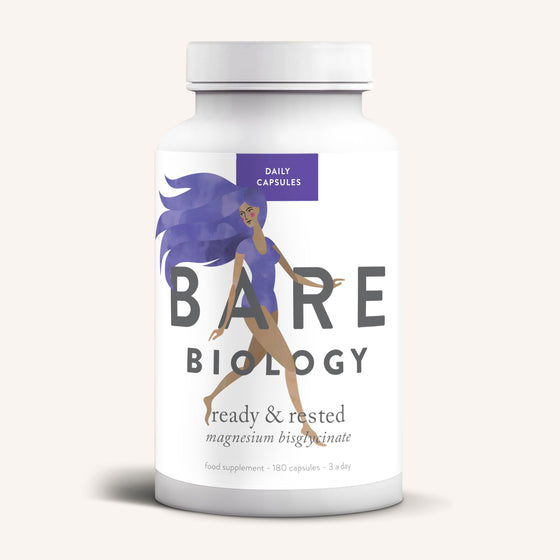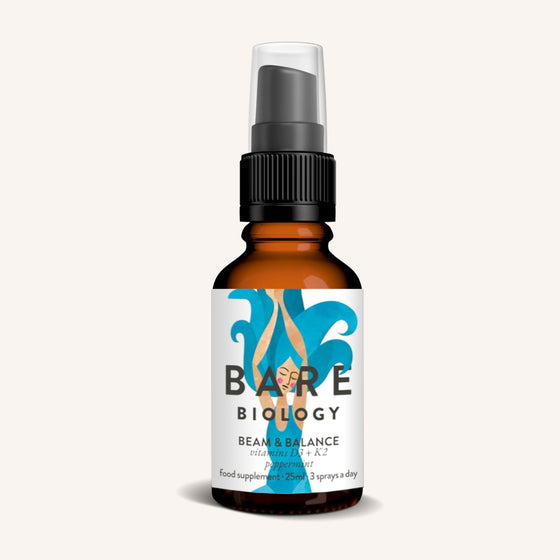As I am writing this, not only are we in the midst of an unprecedented pandemic but it is also Maternal Mental Health Awareness Week 2020. If I’d written this two years ago, I would have described caring for our mental health as being as important as caring for our children. Now, I just refer to it as health because our mental and physical health are interconnected.
Motherhood for me has been about the birth of not only my child but my new identity. A bit like a puzzle that I can keep building, I pick up pieces as we go along our journey. Building this new life takes time and it changes a lot. This picture is our own, it is both beautiful and messy. Some pieces fit, some don’t.
I want to share the pieces of my puzzle that I consider to be the really important ones that hold my picture together.
Matrescence
When we give birth to a child, we also give birth to a Mother. A new identity birthed in the delivery room/at home/in the car/at the shops alongside your new little arrival. Matrescence is the anthropological term for the process of becoming a Mother. When I found out about this, Bonnie was about a year old and it transformed the lens through which I viewed my journey into motherhood. I became much more compassionate with myself. I started to understand that this process, just like adolescence, can be difficult and takes time. Our Matrescence is unique and each pregnancy can bring about its own challenges. It’s a spiritual experience as well as an enormous shift in our hormones, emotions and psychology.
There is no one size fits all
I think this speaks for itself. We are all beautifully different and unique. The journey that leads us to motherhood are our stories and no-one else’s. What works for one mum may not fit with another. Learning to tune into the messages from your body, your gut instinct and the beat of your heart will help quieten the mind.

Recruit your villagers
It takes a village to raise a Mother but don’t forget, you get to pick your village. Something I love to do with expectant mums (or postpartum) is help recruit their support team. During these challenging times this may be virtual support, but there are still ways of bringing in some more practical measures. Here’s an exercise for you to try…
Write a list of the names of people you know under each category:
The ones who know you well and make you laugh. These are the people we can be ourselves around. When everything is changing in our inner and outer world, these core friendships are vital to remind you who you are outside of being a mum.
The practical helpers. These are people that love to make themselves useful by offering help with the day-to-day stuff. At the moment we’re unable to invite someone over but maybe they could cook and drop a meal to your door? If you have a partner or older children, ask for some help with household chores.
The emotional support. Remember not all emotional support is the same and just like a team, you may recruit your members over time. Maybe there is a therapist you resonate with and feel able to talk to? Remember that the connection with the therapist is as important as the therapy itself. Some of my favourite therapies include NLP (Neuro-Linguistic Programming), Psychotherapy, Nutritional Therapy (specifically gut-brain, see below), Emotional Freedom Technique, Guided Meditation, Energy Healing, Reiki and EMDR (Eye Movement Desensitisation and Reprogramming). This isn't an exhaustive list and I wouldn’t suggest trying to take all of this on in one go but there are options. I will always work with a therapist of some kind. It’s my commitment to my personal growth, happiness and my ever-growing health picture.
Mother space
Create a mother space in your house where you feel calm. When I had Bonnie, we were renovating. I couldn’t feel calm and the chaos made me feel a little chaotic in my head too. Rather than trying to overhaul the house, find a space that you can transform into a mother space. Maybe it’s a corner of the living room or in your bedroom, or both. Somewhere you can sit and feed your baby with natural light, a few plants and some comfy pillows. You can introduce colour, pictures, smells or anything that helps you feel grounded, comforted and calm.

Replenish
I’m a big fan of Dr Oscar Serrallach’s work (The Postnatal Depletion Cure). I’m a Nutritional Therapist and did not even consider that depletion could be a factor in my postpartum health struggles! The nutrients required to make, birth and then feed a baby are significant. Our requirements are much higher considering our ‘motherload’ (a term I like to use when considering the demands from environment, children, families and society) is huge.
When considering our nutritional replenishment, we must include both macronutrients (proteins, carbs and fats) and micronutrients (iron, zinc, B12, B-vitamins, magnesium, vitamin D and essential fats).
I try and keep this as simple as possible. Look at the composition of your plate as opposed to counting and monitoring calories. Each meal and snack should include some good quality protein, some healthy Omega 3 fats, complex carbohydrates and as much of the rainbow as you can fit on your plate.
A few specific vital nutrients to consider are:
- Omega 3: This is one of my priorities, specifically the DHA form. Healthy fats help make our cell membranes and brain. They also form our baby’s nervous system which continues to develop and form into their 20s! Amazing. DHA is passed via the breastmilk and generally our needs are greater during this time.
- Vitamin B12: This works with folate to synthesize DNA and red blood cells and assists in the production of myelin, which protects your nerve cells (neurons) and regulates nerve impulse transmission. Found in good quality meat, fish, poultry and eggs. Vegetarian/vegan sources include seaweed, fermented soy, spirulina and brewer’s yeast.
- Iron: Growing and birthing a baby requires a lot of iron. We also need good iron levels to maintain our vitality. Good quality meat, beans, nuts, wholegrains, dark green leafy veg and cashews are good sources of iron.
- Zinc: This is required to maintain the integrity of our cell membranes, particularly important in the gut. Zinc is required to keep copper in balance, as copper can cause anxiety, inflammation and can exacerbate postnatal symptoms. Good quality shellfish, organic meat, eggs, lentils, legumes, nuts and seeds are all good sources of zinc.
- Vitamin D: Vital for an effective immune system and helps keep inflammation under control. Good sources of vitamin D include good quality eggs, mushrooms, fish and full spectrum sunlight (not through a window).
To summarise on nutrition
Keep it simple and ask for help. Eat intuitively. Consider food as medicine and information that will help you heal and thrive. Oh, and we’re not just eating to refuel our stomach, we’re eating to nourish our brains and feed our gut bugs…

Finally – gut health!
I think this is a forgotten piece of the maternal mental health puzzle. The gut and the brain are connected via the vagus nerve. The communication going from our brain to the gut is 10% however the communication going from our gut to our brain is 90%! Our gut dominates the gut brain connection, so there is no surprise that it also affects our brain health and emotions. As well as this, our gut is home to trillions of microbes. In fact we have more microbes in our gut than there are stars in the milky way! Considering these crazy numbers, do you think they’d have a purpose? Absolutely. They in themselves produce vitamins and brain chemicals that support our emotional wellbeing. They protect us from infection and help keep inflammation at bay by protecting our gut wall (which is one cell thick!). In my experience, and in that of many of my mum clients, it’s one of the biggest factors (not necessarily causes) of symptoms of maternal mental health issues such as overwhelm, fatigue and brain fog.
By feeding our gut bacteria the nutrients they need to feel good, we in turn feel good.
Some of my favourite gut loving foods include those mentioned above, plus pre-biotic and probiotic foods such as garlic, onion, leeks, kombucha, yoghurt, kimchi, sauerkraut, kefir, plant based foods, unpasteurised apple cider vinegar, lemon and pineapple.
To conclude
It took me a couple of years to find my puzzle pieces, which is why I am so passionate about sharing this information and supporting other mums who are on their own journeys. For me motherhood highlighted parts of me that had been forgotten. They were not good or bad parts; they were just some of my unmet needs.
My advice is always to trust your gut, acknowledge your feelings, be kind to yourself and take your time. These are areas I will always work on. Motherhood is an ever-changing and evolving journey of challenges and self-growth, not a destination. Growth isn’t easy and it can feel uncomfortable at times. Be gentle with yourself, be brave enough to listen to the messages from your body. What feels messy now will become your magic!
You can read more about ‘My Matrescence’ here.
Annie Breen is a Nutritional Therapist DipCNM mBANT, wife, mum to almost 4-year-old Bonnie and host of the ‘Be You Mum’ podcast.
Annie created ‘Be You Mum’ – an online nutrition and self-care focused coaching and support programme for mums who want to feel great about themselves.
On the 18th May this year, Annie is launching her new online programme ‘Healthy Tum, Happy Mum’ which focuses on restoring balance from the inside-out. Readers who are interested can contact Annie to find out more and receive a promotional code.
https://anniebreennutrition.co.uk/
Instagram: annie_breen_nutrition





